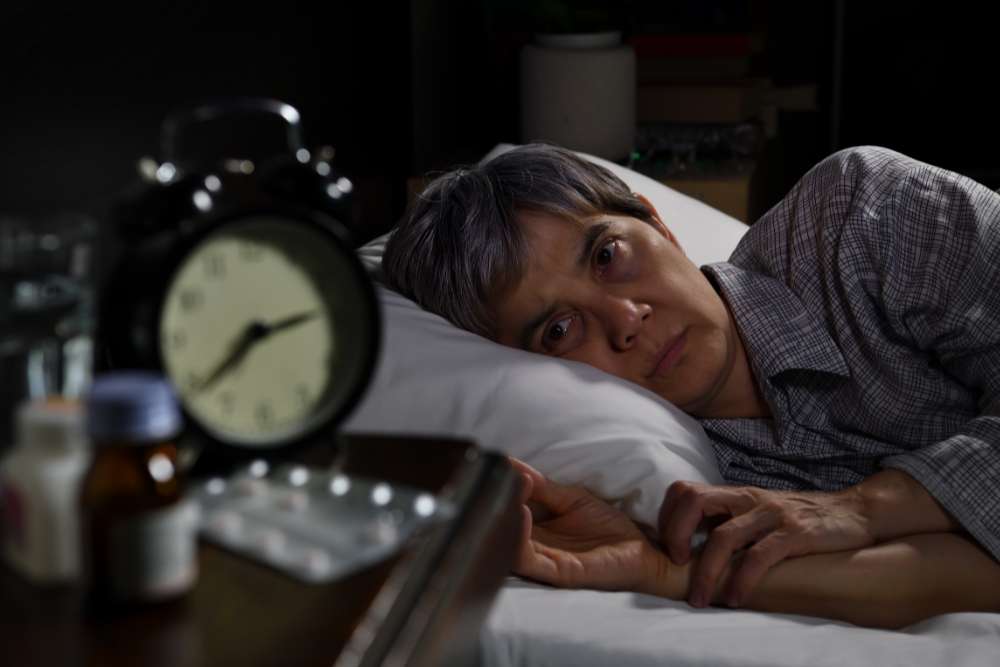What Are The Causes of Daytime Sleepiness?
Daytime sleepiness is a common problem that affects millions of people worldwide. It can significantly impact daily life, work performance, and overall well-being. Understanding the underlying causes of excessive daytime sleepiness is crucial for addressing this issue effectively. In this article, we'll explore the various factors that contribute to daytime drowsiness and discuss potential solutions to help you stay alert and energized throughout the day.

What are the most common sleep disorders causing excessive daytime sleepiness?
Sleep disorders are among the primary culprits behind excessive daytime sleepiness. One of the most prevalent is obstructive sleep apnea, a condition where breathing is repeatedly interrupted during sleep. This leads to poor sleep quality and daytime fatigue. Narcolepsy, a neurological disorder characterized by sudden sleep attacks, is another significant cause of daytime sleepiness. Restless leg syndrome and periodic limb movement disorder can also disrupt sleep, resulting in daytime drowsiness. Identifying and treating these sleep disorders is crucial for improving daytime alertness and overall quality of life.
How does insomnia contribute to daytime sleepiness?
Insomnia and daytime sleepiness may seem contradictory, but they are often closely linked. Chronic insomnia, characterized by difficulty falling asleep or staying asleep, can lead to a significant sleep debt. This accumulation of missed sleep hours can manifest as excessive daytime sleepiness, even if you’re not sleeping during the day. The poor quality of sleep associated with insomnia can also contribute to daytime fatigue. Addressing the root causes of insomnia, such as stress, anxiety, or poor sleep habits, is essential for reducing daytime sleepiness and improving overall sleep quality.
What medical conditions can cause excessive sleepiness and tiredness?
Several medical conditions can contribute to excessive sleepiness and tiredness during the day. Chronic fatigue syndrome, fibromyalgia, and autoimmune disorders like lupus or rheumatoid arthritis often have fatigue as a primary symptom. Hormonal imbalances, such as hypothyroidism or diabetes, can also lead to persistent tiredness. Depression and anxiety disorders frequently cause sleep disturbances and daytime sleepiness. Additionally, certain medications used to treat various health conditions may have drowsiness as a side effect. It’s important to consult with a healthcare professional to identify and address any underlying medical causes of excessive daytime sleepiness.
How do lifestyle factors impact daytime sleepiness?
Lifestyle choices play a significant role in determining our alertness levels throughout the day. Poor sleep hygiene, such as irregular sleep schedules or excessive screen time before bed, can disrupt our natural sleep-wake cycle. Inadequate physical activity and a sedentary lifestyle can also contribute to daytime fatigue. Nutritional factors, including a diet high in processed foods or excessive caffeine consumption, may impact sleep quality and daytime alertness. Stress and overwork can lead to burnout and chronic fatigue. By addressing these lifestyle factors and adopting healthier habits, many people can significantly reduce their daytime sleepiness.
What are the common symptoms of excessive daytime sleepiness?
Recognizing the symptoms of excessive daytime sleepiness is crucial for identifying and addressing the problem. Common signs include difficulty staying awake during passive activities like reading or watching TV, struggling to concentrate or focus on tasks, and experiencing a persistent feeling of fatigue throughout the day. Many people with excessive daytime sleepiness report frequent yawning, heavy eyelids, and a strong urge to nap during the day. In severe cases, individuals may experience microsleeps – brief, involuntary episodes of sleep that can be dangerous, especially while driving or operating machinery. If you’re experiencing these symptoms regularly, it’s important to seek medical advice to determine the underlying cause and appropriate treatment.
How can excessive daytime sleepiness be diagnosed and treated?
Diagnosing excessive daytime sleepiness often involves a comprehensive approach. Healthcare providers may start with a detailed medical history and sleep questionnaires to assess sleep patterns and daytime symptoms. Sleep studies, such as polysomnography or multiple sleep latency tests, can help identify specific sleep disorders. Depending on the underlying cause, treatment options vary widely. For sleep apnea, continuous positive airway pressure (CPAP) therapy is often prescribed. Narcolepsy may be managed with medications to promote wakefulness. Cognitive behavioral therapy for insomnia (CBT-I) can be effective for addressing sleep-related anxiety and improving sleep quality. Lifestyle modifications, including improving sleep hygiene, regular exercise, and stress management techniques, are often recommended as part of a comprehensive treatment plan.
This article is for informational purposes only and should not be considered medical advice. Please consult a qualified healthcare professional for personalized guidance and treatment.




